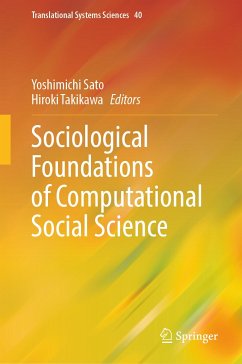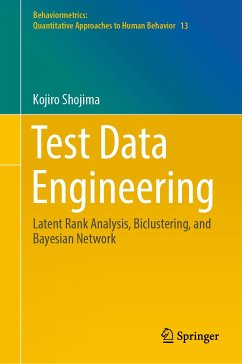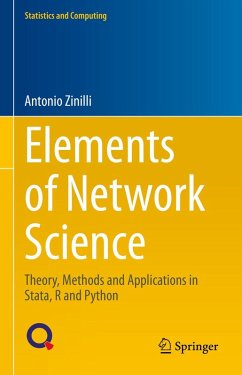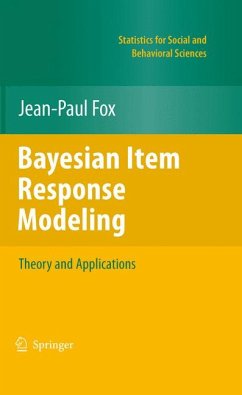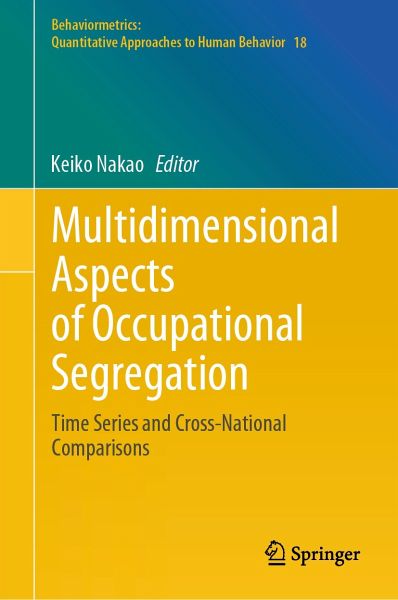
Multidimensional Aspects of Occupational Segregation (eBook, PDF)
Time Series and Cross-National Comparisons
Redaktion: Nakao, Keiko
Versandkostenfrei!
Sofort per Download lieferbar
104,95 €
inkl. MwSt.
Weitere Ausgaben:

PAYBACK Punkte
52 °P sammeln!
One of the strengths of this book is that it expresses occupational segregation from multidimensional viewpoints using correspondence analysis. Through a quantitative approach, the book examines occupational segregation by education and gender in response to industrial transformation in Japan and other countries.The transformation of industrial structure, such as post-industrialization, demands a reconsideration of traditional perspectives in sociology, especially in social stratification. In other words, it is a shift from the attribute to the achievement principle. Higher technological innov...
One of the strengths of this book is that it expresses occupational segregation from multidimensional viewpoints using correspondence analysis. Through a quantitative approach, the book examines occupational segregation by education and gender in response to industrial transformation in Japan and other countries.
The transformation of industrial structure, such as post-industrialization, demands a reconsideration of traditional perspectives in sociology, especially in social stratification. In other words, it is a shift from the attribute to the achievement principle. Higher technological innovations will create higher levels of industries, and those industries will require jobs that need greater human capital. In short, the meritocracy will be promoted.
Meritocracy is certainly considered persuasive. In fact, previous researchers have looked primarily at a person's occupation as a measure of social status. In Japan, jobs are normally acquired after completing education; thus, one's educational achievement plays an important role.
Especially in recent years, however, education alone has not been enough to explain social status. This book, therefore, focuses on occupational segregation by gender in addition to education in post-industrial society. Can occupational segregation by gender be weakened in the highly educated group? Is this a universal story in modern society?
Because post-industrialization is part of the larger story of modernization, international perspectives are needed to examine the linkage between education and gender occupational segregation. This book explores occupational segregation by gender in response to industrial transformation in Japan and other countries.
The transformation of industrial structure, such as post-industrialization, demands a reconsideration of traditional perspectives in sociology, especially in social stratification. In other words, it is a shift from the attribute to the achievement principle. Higher technological innovations will create higher levels of industries, and those industries will require jobs that need greater human capital. In short, the meritocracy will be promoted.
Meritocracy is certainly considered persuasive. In fact, previous researchers have looked primarily at a person's occupation as a measure of social status. In Japan, jobs are normally acquired after completing education; thus, one's educational achievement plays an important role.
Especially in recent years, however, education alone has not been enough to explain social status. This book, therefore, focuses on occupational segregation by gender in addition to education in post-industrial society. Can occupational segregation by gender be weakened in the highly educated group? Is this a universal story in modern society?
Because post-industrialization is part of the larger story of modernization, international perspectives are needed to examine the linkage between education and gender occupational segregation. This book explores occupational segregation by gender in response to industrial transformation in Japan and other countries.
Dieser Download kann aus rechtlichen Gründen nur mit Rechnungsadresse in A, B, BG, CY, CZ, D, DK, EW, E, FIN, F, GR, HR, H, IRL, I, LT, L, LR, M, NL, PL, P, R, S, SLO, SK ausgeliefert werden.
Alle Preise in Euro und inkl. der gesetzl. MwSt. | Innerhalb Deutschlands liefern wir preisgebundene Bücher versandkostenfrei. Weitere Informationen: bitte hier klicken
Support
Bitte wähle dein Anliegen aus:
Rechnungen
Bestellstatus
Retourenschein
Storno




